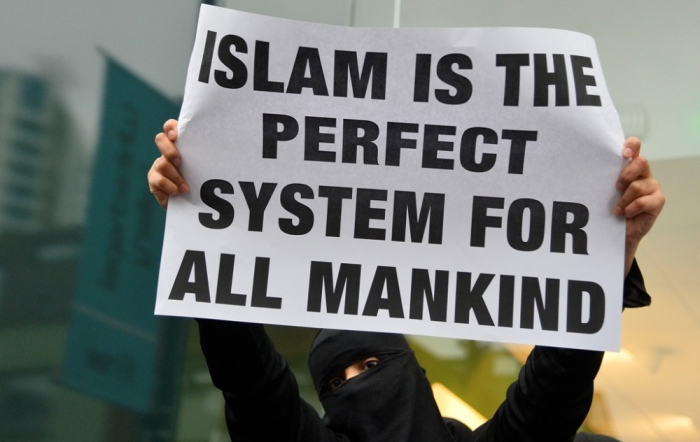Armed Jihadis Impose Sharia Law in Mali, Ban Baptisms and Non-Muslim Weddings, Report Warns

A human rights watchdog group is warning that radical Islamic extremists have imposed Sharia law in a number of villages in Mali, executed public officials and threatened civilians who partake in baptisms and non-Muslim marriage ceremonies.
The international non-governmental organization Human Rights Watch highlighted in a report published Tuesday the human rights abuses being carried out in the central and northern regions of Mali by Islamic terrorist groups like Al-Qaeda, Ansar Dine, the Macina Liberation Front and the Movement for Unity and Jihad in West Africa.
The report states that the Mali government has largely been unable to prevent the Islamic groups from "imposing restrictions on village life" and from executing numerous people.
"The human rights climate grew increasingly precarious over the past year, a result of execution-style killings and intimidation by Islamist armed groups, bloody intercommunal clashes, and surges in violent crime," Corinne Dufka, HWR's associate in Africa director, said in a statement. "The government's failure to assert control and curtail security force abuses has added to the deteriorating situation."
The report explains that although a French-led military intervention helped to push back occupying terrorist groups in northern Mali in 2013, human rights abuses "steadily increased" starting in mid-2014. Those abuses only worsened in the last two years and also spread to the African nation's central region.
Over 70 victims of the abuses, lawlessness and violence in Mali were interviewed by HWR in April and August of 2016, including members of four different ethnic groups, U.N. officials, diplomats and people who have been detained in government custody.
According to HRW, at least 27 people were executed by Islamic militant groups in 2016, most of which were local government officials, security personnel, and village chiefs and fighters who are party to the 2015 peace accord accused of providing intelligence to French counterterrorism forces.
"Villagers described how Islamist groups of up to 50 armed fighters, including teenage boys, occupied villages for hours and threatened death to anyone collaborating with French forces, the government, or U.N. peacekeepers," the report states. "In several villages, the groups imposed their version of Sharia (Islamic law), threatening villagers not to celebrate marriages and baptisms."
One villager told HRW that "our traditional customs are no longer allowed because of the presence of jihadist fighters from our own villages." He added, "our way of celebrating is now haram [forbidden]."
Other victims say that the militants pressured families to give away their children to join the militant groups in central Mali.
In all, 29 U.N. peacekeepers were killed in Mali in 2016, which is twice as many that were killed in 2015. Most of those attacks were claimed by groups linked to Al-Qaeda.
In addition to the human rights abuses of Sharia law being imposed in those villages, HRW estimates that thousands of civilians in northern and central Mali were victims of banditry in 2016.
Based on witnesses, security sources and media reports, as many as 400 incidents of banditry occurred in 2016.
"Armed bandits killed at least eight people and wounded over 30, routinely targeting public vehicles and buses, animal herders, and traders," the report explains. "Victims alleged that government security forces were either unable or unwilling to protect them and rarely investigated the crimes."
Dufka asserted that Malian authorities "need to do much more to fulfill their responsibility to protect civilians in north and central Mali."
"After so many years of insecurity, civilians deserve to see more security dividends from the peace process," she said.
According to the recently released Open Doors USA 2017 World Watch List, Mali ranks as the 32nd worst country in the world when it comes to the level of Christian persecution. Given the fact that HRW finds that the number of human rights abuses in Mali have steadily increased in the last two years, Mali jumped 12 spots on the World Watch List in the last year, as it previously ranked at No. 44 on the 2016 World Watch List.
Al-Qaeda in the Islamic Maghreb claimed responsibility for a suicide car bombing on Wednesday that killed over 50 people in the northern Mali city of Goa. In claiming the attack, the militant outfit said it was meant to target rebel outfits that are collaborating with French forces.
Al-Qaeda in the Islamic Maghreb also recently released a video purporting to show kidnapped Swiss missionary Beatrice Stockly, who was abducted from her home in Timbuktu over a year ago, saying that she is in good health and that her captors have treated her well.
It is believed that the militants are holding the missionary as ransom, promising to let her go if authorities release Al-Qaeda militants from prison.





























